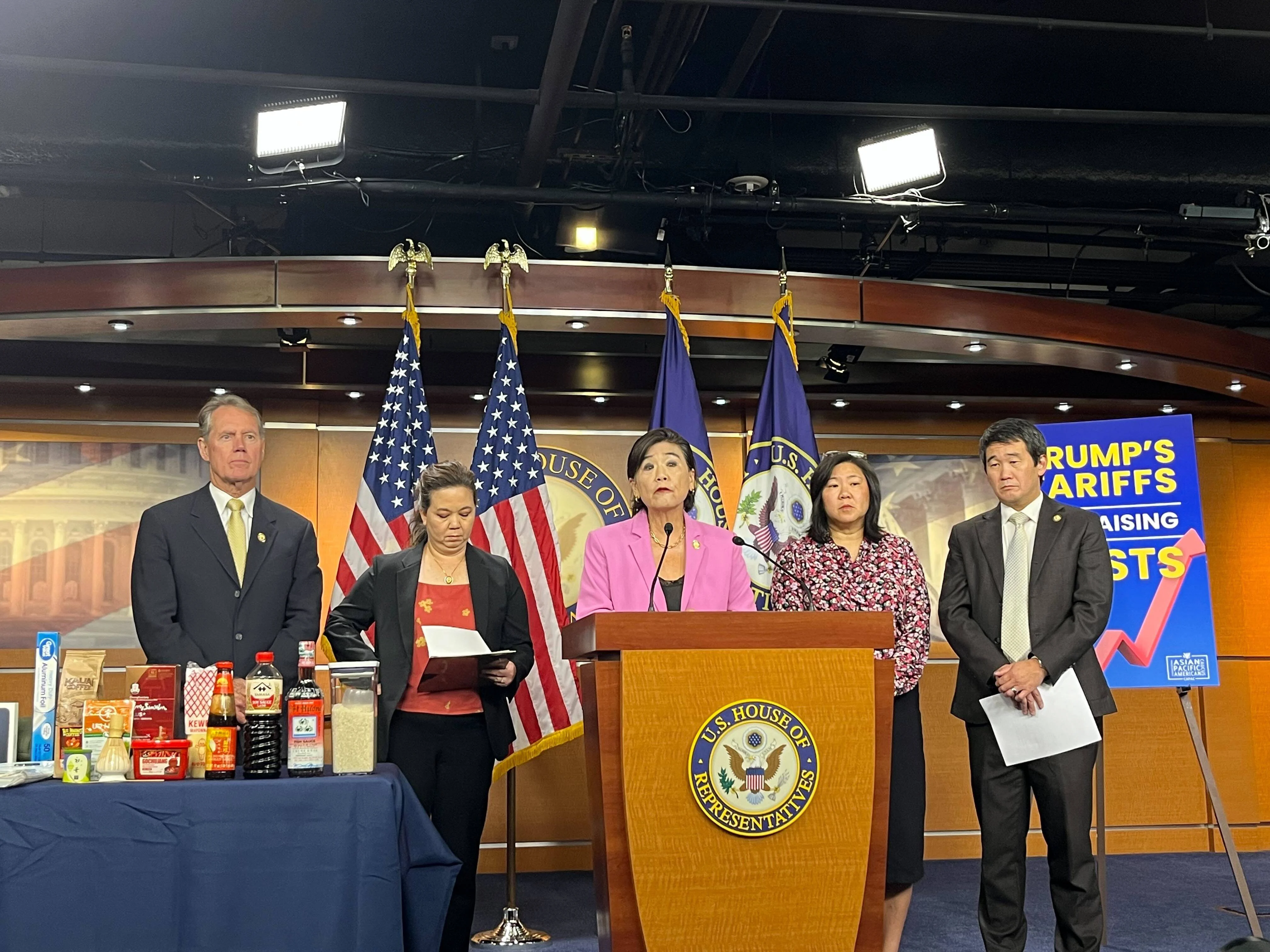By Bochen Han,Khushboo Razdan
Copyright scmp

Businesses owned by Asian-Americans are struggling with mounting costs as a result of US President Donald Trump’s tariffs, with some potentially being forced to shut down, a group of Democratic lawmakers warned on Thursday as they urged the administration to reverse the duties.
The warning, reflecting growing national discontent regarding Trump’s tariffs, coincided with a media briefing in front of the US Supreme Court where a group representing over a hundred small business owners pressed their case about the damages that the tariffs have inflicted on them.
“Asian-American businesses and communities are treated as collateral damage,” said congresswoman Grace Meng of New York, chair of the Congressional Asian Pacific American Caucus (CAPAC), at a Thursday event held in the US Capitol complex.
“Mom and pop stores are being forced to make an impossible choice: raise prices or close down for good,” she continued, citing a Chinatown restaurant in New York that has seen its spice and seasoning costs double.
Congresswoman Judy Chu of California, chair emerita of CAPAC, called the tariffs a “cruel betrayal” and said that they were causing “needless pain and uncertainty” for many in her district.
“One of my constituents runs a family business importing medicinal oil from Asia. After the president’s tariff announcement, their import costs skyrocketed overnight, from US$500 to US$13,000 for one single shipment,” she said, adding that they might have to close their doors and lay off workers.
Chu urged House Speaker Mike Johnson to allow a vote on a Democratic bill that would roll back global tariffs and require congressional approval for any new ones.
The remarks, made as the administration is defending the tariffs’ legality in court, come more than five months after Trump raised baseline tariffs on countries worldwide and over six months after he imposed higher duties on goods from China – moves he has framed as necessary to protect American industries. In recent weeks, additional hikes have come into effect on imports from several Asian economies.
On Thursday, Trump reiterated his stance, saying that “the only people that are against tariffs are people that are in favour of other countries”.
Asian-American businesses, the lawmakers say, are being hurt disproportionately as many of the goods and inputs they rely on – like traditional medicines – are not produced in the United States.
In addition to Meng and Chu, other House representatives present on Thursday included Ed Case and Jill Tokuda of Hawaii, and Dave Min and Ted Lieu of California.
Asian-Americans are majority owners of about 11 per cent of small businesses in the US, according to a survey published last year by the Pew Research Centre.
Around the country, such businesses have reported tariff-induced price hikes on their goods this year – ranging from 20 to 50 per cent – noting that customers are buying fewer items even as they still come.
Some small Asian-owned businesses in Washington say they’ve avoided raising prices as consumer spending in the city has decreased in recent months, while others say they have had no choice.
“It’s getting worse and we’re adjusting. If they raise prices, and if we don’t, we’ll go out of business,” said Liu Chunqiang of De Zhi Co., a store for Chinese gourmet food, herbs and gifts, in Washington’s Chinatown, noting that many of his products are from China’s Guangdong province.
Trump had raised tariffs on Chinese imports in waves since February before suspending the steepest duties in early May, pending further negotiations with Beijing.
The current pause on tariffs is expected to remain in place until November 10. Negotiators from both countries held a fourth round of trade talks in Madrid from Sunday to Monday, and Trump is scheduled to speak with Chinese President Xi Jinping on Friday.
As of August 6, the Yale Budget Lab estimated that the average effective US tariff on Chinese goods was 27.9 per cent, and 15.6 per cent on the rest of the world other than Canada and Mexico.
Last month, a US appeal court ruled that many of Trump’s tariffs were illegal but allowed them to remain in place while the case moves through the appeals process.
The Supreme Court, asked by the administration to quickly intervene, is set to hear oral arguments in that case in early November.
On Thursday, under the banner “We Pay the Tariffs” and joined by Democratic Senator Maria Cantwell of Washington, a group of small-business owners from across the country rallied on the Supreme Court steps to decry the punishing costs and uncertainty created by the administration’s trade policies.
The group, comprising more than 100 businesses, has scheduled nearly 150 meetings with lawmakers over the next two days.
“It’s impossible to know whether my future sales will actually be profitable or drive me out of business,” said Alex Wolf, owner of Spielcraft Games, a Nebraska-based board game publisher that manufactures in China.
He called the tariffs “antithetical to the ideals of freedom and the pursuit of happiness”, but expressed hope that lawmakers would “have the courage to do the right thing”.
Tiffany Williams, a third-generation owner of the Luggage Shop of Lubbock in Texas, questioned Trump’s promises of long-term benefits of higher tariffs.
“What exactly does that mean? And is it worth risking the survival of small local businesses like ours in the process?” she asked, noting that local economies rely on shops like hers, which tariffs are making increasingly difficult to sustain.
Others lamented that even costly adjustments they made in anticipation of the tariffs were futile.
Travis McMaster of Cocoon USA, a retailer of outdoor and travel goods in Wenatchee, Washington, said he moved production from China to India last year, only to be hit with new 50 per cent tariffs on Indian imports.
“We need to put a stop to this whiplash,” he said. “Our business isn’t run on a whim, and our country shouldn’t be either.”
On Tuesday, the House narrowly approved a rule ceding tariff authority to the administration, effectively blocking challenges to Trump’s sweeping global tariff declarations through March 2026.
Case, of Hawaii, on Thursday called the tariffs an “usurpation of congressional power”, adding that they also have negative consequences on the US’ relationship with “friends and allies in the Asia-Pacific where so many of our citizens have their origins”.



